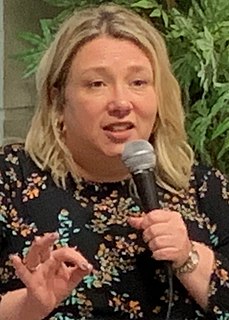Top 26 Quotes & Sayings by Gail Honeyman
Explore popular quotes and sayings by a Scottish writer Gail Honeyman.
Last updated on September 19, 2024.
I wanted to write about the transformative power of small acts of kindness. An old man falls in the street, you stop and make sure he's OK. Or even smaller acts than that, though - buying someone a cup of coffee, telling them their hair looks nice - sometimes you don't realise the transformative effect on people. I wanted to celebrate that.
I had been thinking about social awkwardness and about people you meet who are not bad people - there is nothing wrong with them, but they are just a little bit awkward, and it makes you feel uncomfortable, and it makes you want to bring the encounter to an end. I thought, 'Is there a reason for that? What has contributed to their demeanour?'






















